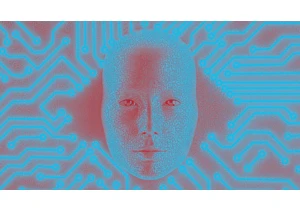Anthropic announced on Wednesday a new “Claude Enterprise” plan that makes it easier and safer for teams across an organization to share proprietary data with powerful large language models.
Under the new plan, Anthropic doubles the size of its model’s context window to 500,000 tokens, meaning that companies can feed Claude twice as much information at one shot, compared to previous plans. That’s the equivalent of 200,000 lines of computer code. Claude Enterprise will compete head-to-head with OpenAI’s ChatGPT Enterprise in the enterprise marketplace. (ChatGPT Enterprise was released a year ago.)

An integration with GitHub (now in public beta) lets a company’s engineers share codebases directly with Claude. Anthropic product leader Scott White tells Fast Company that a designer could show Claude a screenshot of a buggy feature of a website, and the model could diagnose the underlying code issue, then suggest a way to fix it. Or designers might describe a new tab for an app, and Claude would create a design mockup, complete with working buttons.
“We are moving from an AI assistant to a virtual collaborator for anyone,” White says.
The new plan makes use of Anthropic’s Artifacts, which let users use Claude to create small pieces of software on the fly for specific tasks. White says an employee might, for example, quickly create an Artifact to analyze a large quantity of customer service call transcripts.
The big picture is that, with Claude Enterprise, Anthropic is beginning to map out how an organization might integrate AI models into the work of departments or groups up and down the company.
“It’s something that can let any kind of worker take their job function, their organizational context, their knowledge, and work with it,” White says, “as you would with a team of awesome collaborators.”
The new plan builds on Claude for Teams, launched last May, which offered some basic collaboration features to the chatbot.

The new plan also introduces a number of new features that may reduce the anxiety of sharing secret or sensitive proprietary data with a third-party AI model like Claude. The enterprise plan offers a fine-grained provisioning and permissions system that establishes a primary owner for a given project, and gives them control over which employees have access to data and AI features.
White says Anthropic will also soon roll out a system that identifies employees who can access the AI across different knowledge domains in the organization. Such a person might be able to work with Claude on a marketing campaign then work with Claude on a secret product design, then help create a new job description with HR. White says his company will also offer new audit logs that can trace the activities of the AI models for security and compliance purposes.
“You get more and deeper functionality of the primitives that we support today,” White says. “And then administrators get a whole suite of controls to govern their organization’s data.”
Claude Enterprise is available today, with the cross-domain identity management and audit log features becoming available “in the coming weeks.”
Autentifică-te pentru a adăuga comentarii
Alte posturi din acest grup


In 2024, Amazon introduced its AI-powered HR ass

Lore isn’t just for games like The Elder Scrolls or films like The Lord of the Rings—online, it has evolved into something entirely new.
The Old English word made the s

Ben Sweeny, the salesman-turned-comedian behind that online persona Corporate Sween, says that bosses should waterboard their employees.
“Some companies drown their employees with



As I write this, the most pleasing sound is washing over me—gentle waves ebbing and flowing onto the shore. Sadly, I’m not actually on some magnificent tropical beach. Instead, the sounds of the s
